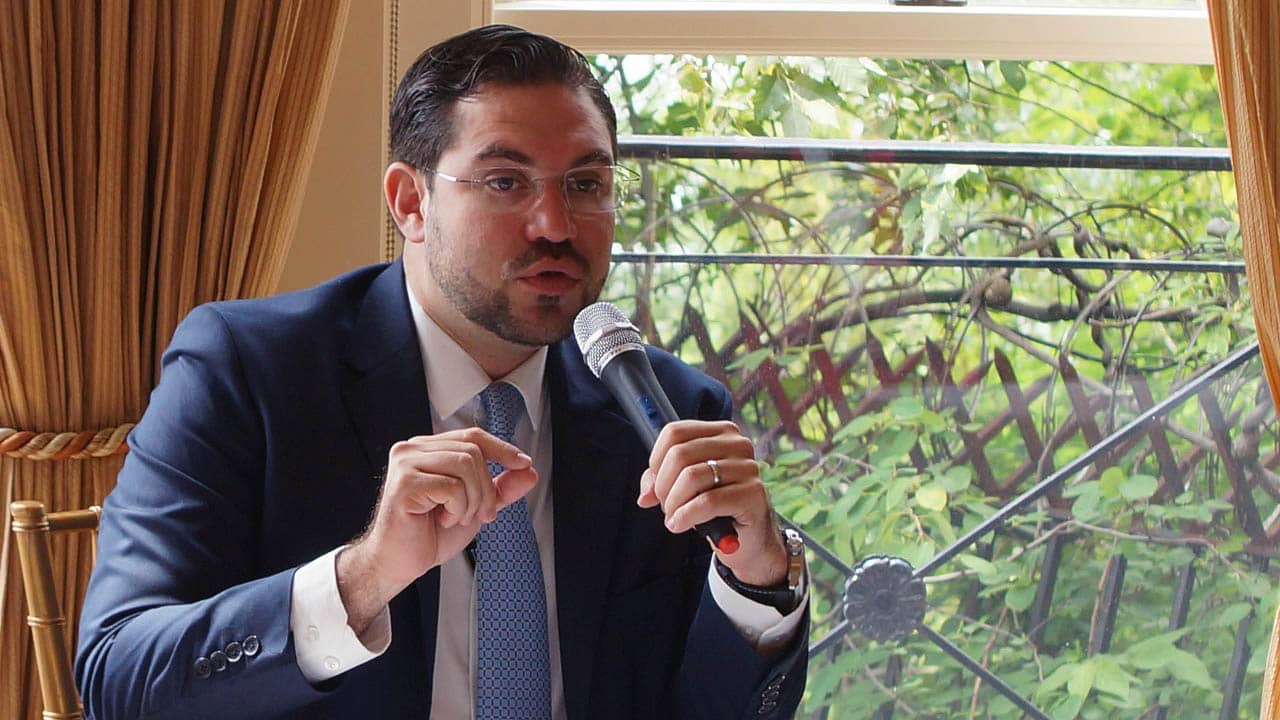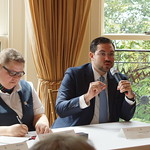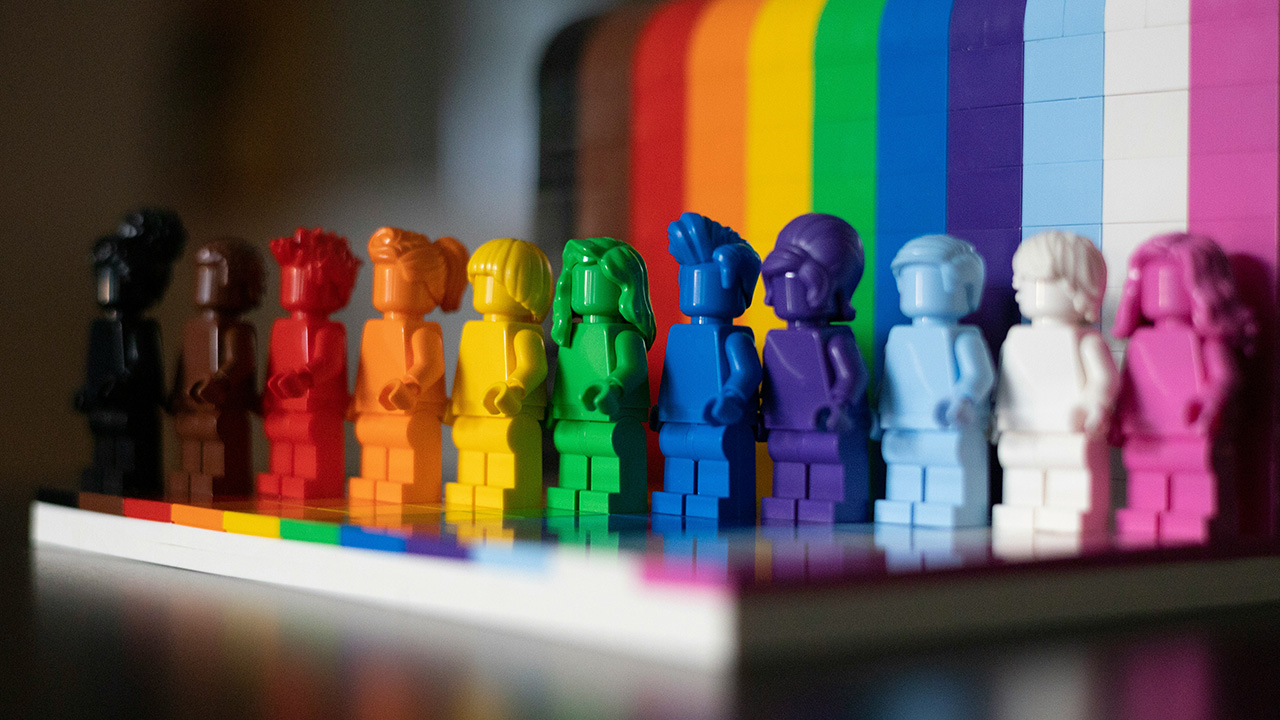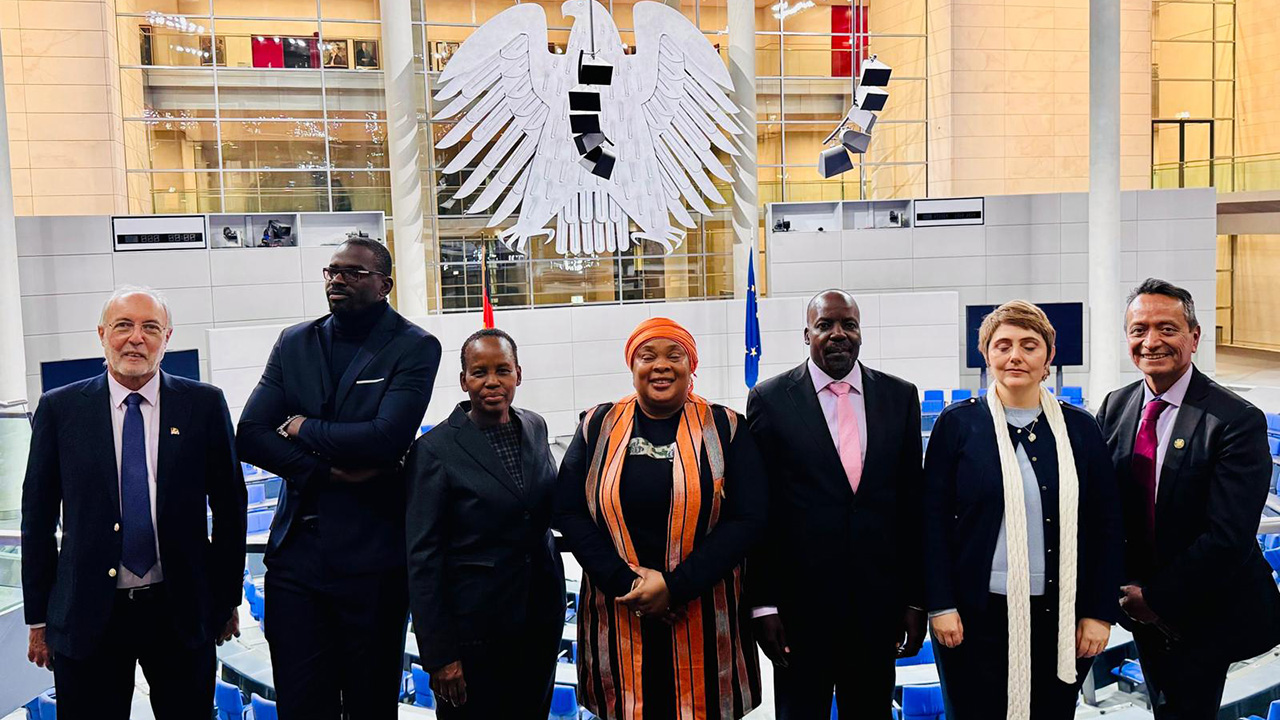
New York, NY. - On July 12, 2019, the Permanent Mission of Luxembourg to the United Nations hosted a discussion among representatives of Member States from the UN LGBTI Core Group and Parliamentarians for Global Action’s (PGA) Board members on equality and inclusion of Lesbian, Gay, Bisexual, Trans and Intersex (LGBTI) people and the relevance of Sustainable Development Goal (SDG) 16 at both national and international levels to achieve the vision of leaving no one behind.
Maria Sjödin, Deputy Executive Director from Outright Action International, facilitated the panel where parliamentarians from Argentina, Belize, Honduras and Pakistan shared their experience and the actions they have taken to promote LGBTI rights.
In her introductory remarks, PGA President Ms. Margareta Cederfelt, MP from Sweden, noted:
Even though, the SDGs lack an explicit reference to sexual orientation, gender identity and/or expression, and sex characteristics, targets such as Promoting the rule of law at the national and international levels and ensuring equal access to justice for all (16.3); Ensuring responsive, inclusive, participatory and representative decision-making at all levels (16.7); and Promoting and enforcing non-discriminatory laws and policies for sustainable development (16B) speak to the need to ensure that challenges of access to justice, political participation and real equality, to each of the LGBTI populations, are addressed effectively in our countries.
Panelists raised the following main points during their intervention:
Diputada Carla Pitiot from Argentina
Argentina is a role model as the first country in Latin America to recognize marriage equality and protections against discrimination towards LGBTI people. Civil society was key to passing the laws and to this effect, there were dialogues between civil society and parliamentarians. The marriage equality law opened the door to the passage of the gender identity law of 2012 that gave the right to a self-perceived gender without a medical diagnosis. In Argentina, it is not necessary to have surgery to have the right to change your gender as per your perceived identity.
There is a need to deconstruct ingrained cultural patterns.
The current challenge is on the non-discrimination law that is archaic and obsolete as it does not reflect the reality on the ground. Decision-makers are working with civil society and the INADI to amend this law. Three main priorities:
-
Promise access of all human rights to every LGBTI person.
-
Raise awareness about health issues and prevent illnesses.
-
Incentivize collection of data about LGBTI people to impact public policies.
Lastly, the Executive sent a bill to Congress to work on parity on employment.
Senator Valerie Woods from Belize
As a Senator in Belize, she tries to play the role as an ally to the LGBTI community. Regarding the Orozco case, the Court will decide in October the definition of SOGI in the Constitution. As a parliamentarian, she tries to express as often as possible in public platforms that human rights are for everyone. By doing this, we normalize LGBTI issues so that it is not such a taboo topic.
Another role that parliamentarians can play us with the Executive. When the government has signed treaties or is at the Universal Periodic Review (UPR) and accepts recommendations, it is obligatory for Members of Parliament (MP), to hold them accountable. As an MP, she makes sure to follow up with the Minister of Foreign Affairs on the actions and timeline to move the agenda forward.
It is also important to highlight and showcase the stories of LGBTI civil society representatives. This is an issue that affects us all.
Diputado Jorge Cálix from Honduras
Many people see this issue as taboo and not from a human rights perspective.
He is promoting three items:
-
The first two relate to access to justice for every citizen – same-sex couples cannot access justice if one of the partners is a victim of domestic violence. Victim cannot go to the court against the perpetrator. Currently, the law only provides for justice in case of a woman/man relationship. He is trying to work on neutral language that would not create a backlash from conservatives: “violence within the couple.” Mentioning partners instead of specifying sex/gender and without relation to SOGI.
-
The second issue relates to inheritance. Since Honduras does not have marriage equality, a surviving partner in a same-sex couple cannot inherit from the deceased loved one. In Honduras also, people do not leave wills. He is trying to write a simple correction to amend the civil code and change the language to neutral removing the reference to man/woman and just make it the partner/couple.
These two reforms are very hard to pass in conservative and hypocritical societies.
-
The third item is on political participation where there is some progress for LGBTI people. Honduras has quotas for several groups: women, trade unions, youth, etc. but not for LGBTI people. In his political party (LIBRE), they have a quota for LGBTI people and it’s the only political party to have it and that has run openly LGBTI candidates. However, the party ballots include the official names in their birth registrations that do not coincide with their self-perceived identity and to the names they are well-known in the community. This fact has obstructed their right to political participation and affected their chances to win in the elections.
He proposes two ways to make progress on this issue in Honduras:
-
Civil society plays a huge role and has the possibility to influence the political agenda of the country. For example, they can submit shadow reports at the UPR and used the recommendations from Member States to exercise pressure on government. In the last UPR, Honduras received 128 recommendations.
-
International community through the requirements to access loans, which Honduras requires. So far, compliance on LGBTI issues have not been a requirement to access loans/funding. If LGBTI issues are included, then there will be movement towards progress.
He concluded by expressing the importance of having PGA’s support on this topic.
Honorable Naveed Qamar, Member of Parliament, Pakistan
Historically, transgender people have had a cultural role in Pakistan. With colonialism, came discrimination and marginalization of this community. Grateful to PGA who pointed to the right direction and gave him the opportunity play a leadership role to advance the legislation to protect Transgender persons. He has adopted this topic as part of his party agenda (which always includes human rights issues). He got political and religious parties to accept the bill in the National Assembly in a race against time as the legislature was ending.
The Transgender Protection Bill gives people the right to choose their identity and have it reflected in their national identity card, including their right to vote, school admissions, right to inheritance (men get twice as much property as women), access to hospitals and doctors, and sets up shelters for trans people.
He pushed this as a private member’s legislation and now the challenge is the implementation. He was asked to be the patron of a new NGO that will help implement this law.
Lastly, during the lively interactive dialogue, Deputy Permanent Representatives from Argentina, the Delegation of the European Union, Uruguay, Spain, and the Netherlands expressed their appreciation for the testimonies of PGA’s Board members and pointed to their countries’ progress. The Deputy Permanent Representative for Belgium and Chile coincided that sometimes MPs are behind the curve of societal movement/change and that society, in many instances, can go further than Parliaments.
In her concluding remarks, Maria Sjödin highlighted the importance of engaging with civil society and the connections with colleagues around the world for learning and international mobilization.
As politicians, you need to be brave and show leadership. Recognize the connection of SOGI issues with broader gender equality issues between men and women and encourage everyone to tell their stories,” she said.





